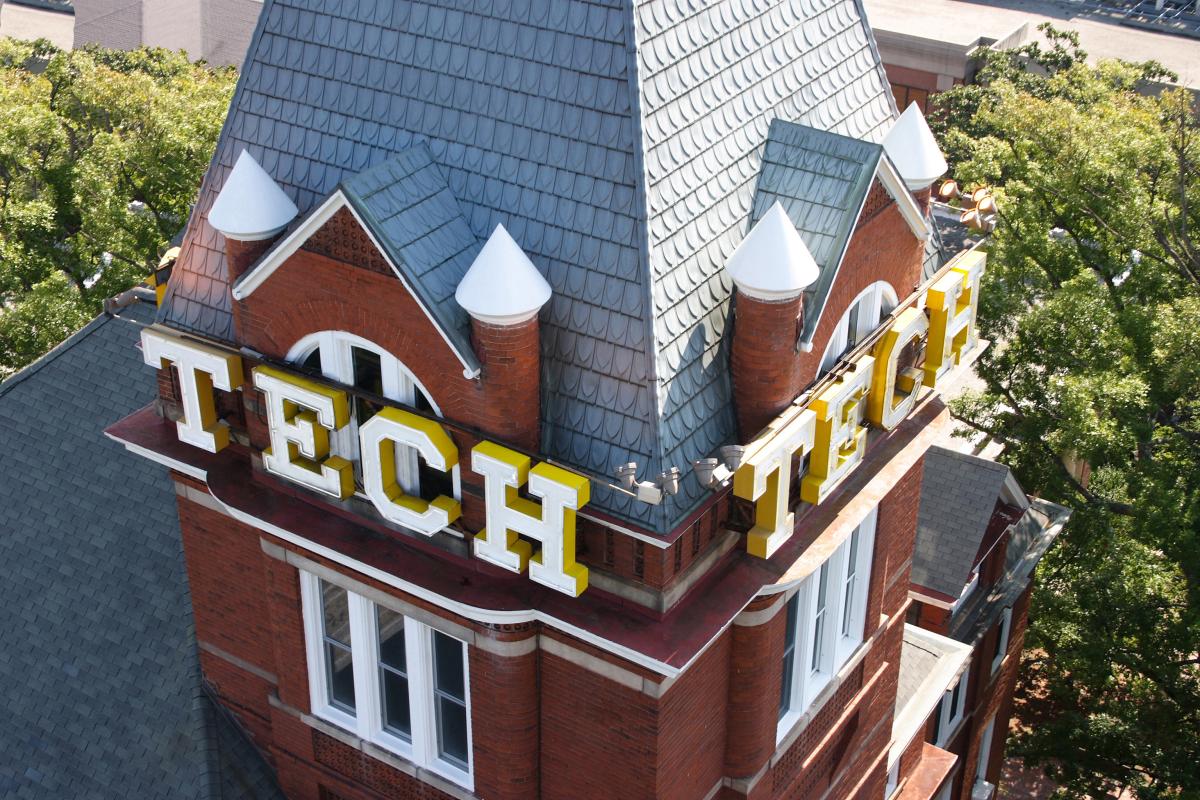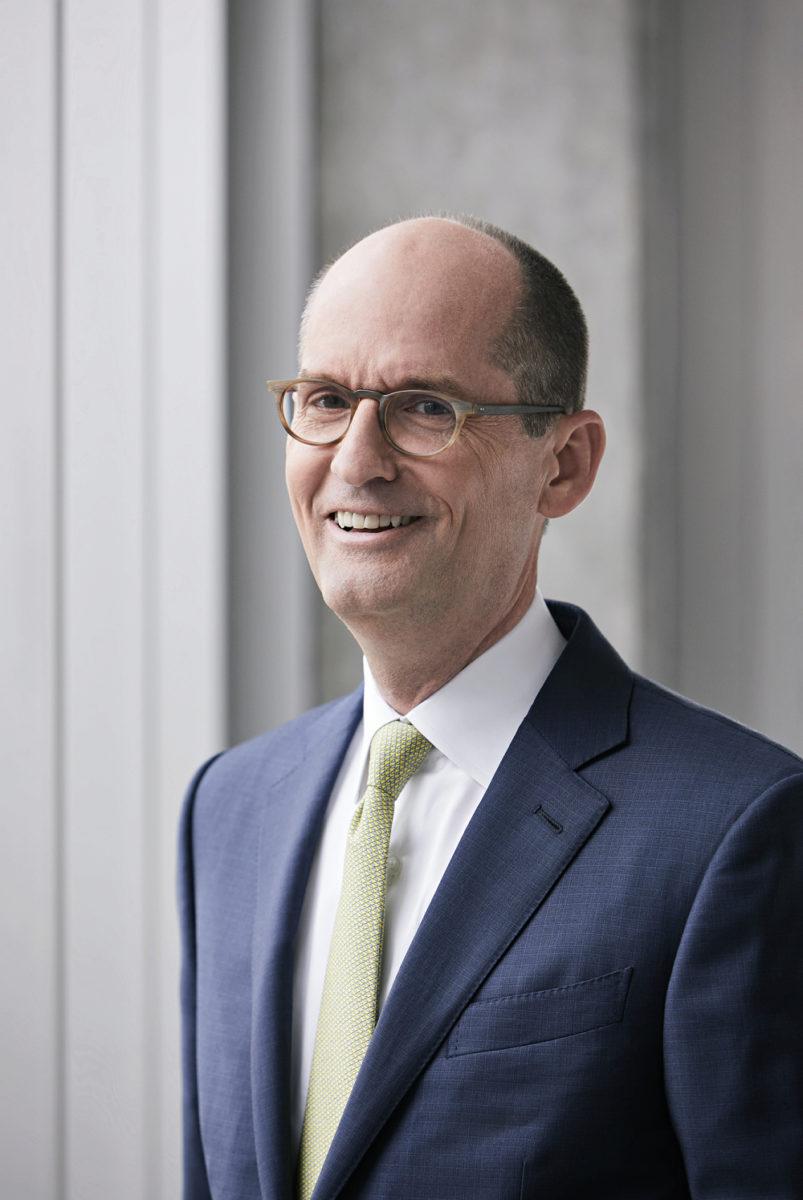New College of Engineering Dean Steve McLaughlin shares the goals and challenges of shaping tomorrow’s engineers

Just who is the new dean of Georgia Tech’s College of Engineering?
He’s a world traveler with a sense of adventure. An entrepreneur who admits he’s more mathematical than mechanical. A believer in the potential of engineers to make life better for others – and a coffee enthusiast who might well be roasting java beans for a living if he weren’t leading the nation’s largest engineering school.
He’s Steve McLaughlin, and he spent a few minutes with Georgia Tech Alumni Magazine to share his thoughts about the College and its future.
What’s one thing readers might be surprised to learn about you?
I once spent three days on safari in the middle of nowhere, in an area 50 miles by 50 miles. It was a totally transformational experience.
You’re no stranger to world travel. You were Georgia Tech’s first vice provost for international initiatives.
Georgia Tech got an early start in international education back in the 1980s. The mayor of Metz, France wanted to turn that city into a knowledge-based economy. Next thing you know, they built Georgia Tech a building. So before study abroad became trendy in higher education, we had a strong program overseas.
We read that 5 percent of engineering students nationwide study abroad. But in the College of Engineering, it’s about 50 percent?
Yes, and I’d love for it to be 100%. International experience is one of the most profound experiences our students can have. Before joining our study abroad program, many students have not traveled much. It’s a little scary to them. Fifteen weeks later, they’re completely different people – so much more confident.
You’ve also championed student entrepreneurship – you were key to starting the CREATE-X program to help students launch companies.
Students today know they need to take control of their own careers. They have to create their own jobs. So they come here, and they think maybe they can start a company. So we pour gas on any embers that are glowing.
As dean, do you plan to expand the program?
Absolutely. For fall semester, we had 185 student teams apply to be one of 30 new companies. Each selected team gets $20,000, free legal help and mentorship. We’ll soon be able to expand to 100 student companies, and our 10-year goal is 300 student startups every year.
Meet Steve McLaughlin
Hometowns: Pittsburgh, Pa., Rochester, NY
Higher education: BSEE, Northwestern; MSE, Princeton; PhD, Michigan
Private sector: Eastman Kodak, Bell Labs, Booz Allen Hamilton
Research: Coding / signal processing for wireless communications, data storage; 36 U.S. patents
Entrepreneurship: Three start-up companies
Faculty, School of Electrical and Computer Engineering, Georgia Tech (1996 – present)
Vice Provost, International Initiatives, Georgia Tech (2007-12)
Recipient: Chevalier National Order of Merit (France, 2011)
Chair, School of Electrical and Computer Engineering, Georgia Tech (2012-17)
Most admires: Roberto Clemente (Pittsburgh Pirates), Claude Shannon (mathematician)
Family: Wife (Mary), Son (Will)
You spent some time in the private sector – how did you end up in education?
While I was working for Booz Allen in Washington in the 80s, a friend brought me to this after-school tutoring program for inner-city kids. That led me to take a year off to teach math in the district. I loved teaching, so I went and got a Ph.D., thinking I was going to be a teacher at a university. But then I discovered I also enjoyed research, and things took off from there.
What most prepared you to become dean?
I see myself as a people person. I draw energy from people. A perfect day is away from email, talking to people, hearing their story. So many people who have Georgia Tech in their past have such interesting stories. I also love complex problems.
So what’s the most complex problem in higher education today?
No question, it’s access and affordability. Think about those who don’t have access to what students have at Georgia Tech. Our students are already technologically literate when they arrive. They come out technological superstars. But what about the other 99.99% who don’t have immediate access to Georgia Tech? Do we play a role in helping them become more technologically skilled? I would say yes.
Where do you see the College of Engineering a few years from now?
In the last 8 or 10 years, we’ve made a lot of progress in areas where we’re no longer the fast follower, in many areas we’re the leader. We’ll continue to build on our strengths, especially basic research. There are some big things on the horizon we’re involved in, like stem cell manufacturing, cyber-security, others. We’ll also continue to develop our relationship with Emory.
New adventures ahead, then?
The unexpected is what’s next. I’m incredibly lucky. I get paid to do something for a living that I would do for free.
*This story also appears in the Georgia Tech Alumni Magazine.*
